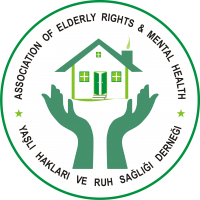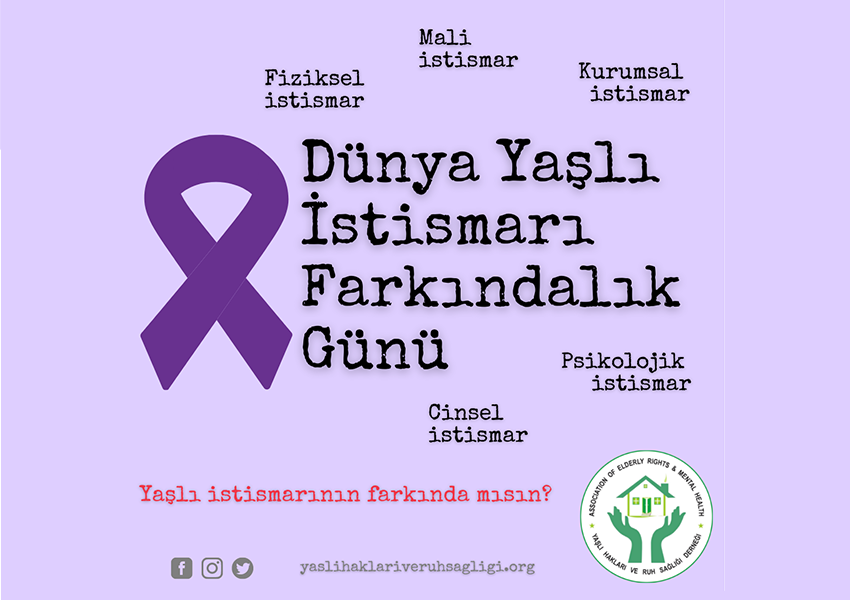What is elderly abuse and neglect?
All behaviors that threaten the health or well-being of the elderly and harm the elderly are defined as elder abuse.
Abuse and neglect can occur anywhere: at home or a public place, at hospital or at a care home.
The person may be living alone or with others. The person causing the harm may be a stranger but, more often than not, they’ll be familiar and feel safe with them. They’re usually in a position of trust and power, such as a health or care professional, relative or neighbour.
Different forms of abuse and neglect
Domestic abuse
Many of the types of abuse listed here will also be domestic abuse if they are perpetrated by someone the elderly is connected to, such as their current or ex-partner, their adult child, their adult grandchild, or another family member.
People often think domestic abuse only affects younger people, but any person of any age and any gender can experience domestic abuse.
Organisational abuse
This can include an incident or pattern of incidents involving ongoing ill-treatment within an organisation. This could involve neglect, acts of omission or poor practice as a result of inadequate structures, policies and practice.An organisation could be a care home, a hospital, a day service, or a service delivering domestic care.
Physical abuse
This includes:
- being hit, slapped, pushed or restrained,
- being denied food or water,
- not being helped to go to the bathroom when they need to,
- misuse of medicines,
- things such as intentionally keeping a walking aid out of reach.
Sexual abuse
This includes:
- sexual assault,
- rape,
- sexual harassment,
- pressurising the elderly to perform or take part in sexual acts they don’t consent to. This can also include non-contact sexual acts such as indecent exposure, online abuse and non-consensual pornographic activities.
Psychological abuseThis includes:
- emotional abuse,
- threats to hurt or abandon you,
- stopping you from seeing people,
- humiliating, blaming, controlling, intimidating or harassing you,
- verbal abuse (humiliating in front of others, name-calling, shouting),
- an unreasonable and unjustified withdrawal of services or support networks.
Discriminatory abuse
This includes some forms of harassment, slurs or unfair treatment because of age.
Financial abuse
- Stealing money or other valuables from elderly,
- Someone appointed to look after an elderly’s money on their behalf using it inappropriately,
- Coercing elderly to spend their money in a way they’re not happy with,
- Theft,
- Fraud,
- Exploiting their financial affairs,
- Restricting their access to money, employment or possessions,
- Pressurising and coercing them about their will, lasting power of attorney, property and inheritance,
- Internet/phone scams and doorstep crime are also common forms of financial abuse.
Neglect
- Leaving the ederly without help to wash or change dirty or wet clothes,
- Not getting them to a doctor when they need one or not making sure they have the right medicines,
- Wilfully ignoring their medical or physical care needs,
- Failing to provide them with access to appropriate health or social care,
- Limiting access to food, drink, medication or heating,
- Restricting support with personal care, and not supporting to attend medical appointments.
Abuse at home
An elderly person is more at risk of abuse at home if:
- They’re isolated and do not have much contact with friends, family or neighbours,
- They have memory problems or difficulty communicating,
- They become dependent on their carer,
- They do not get on with their carer,
- Their carer is addicted to drugs or alcohol,
- Their carer relies on them for a home, or financial or emotional support.
Spotting signs of abuse in older people:
Behavioural signs of abuse in an older person include:
- Becoming quiet and withdrawn,
- Being aggressive or angry for no obvious reason,
- Looking unkempt, dirty or thinner than usual,
- Sudden changes in their character, such as appearing helpless, depressed or tearful,
- Physical signs – such as bruises, wounds, fractures or other untreated injuries,
- The same injuries happening more than once,
- Not wanting to be left by themselves or alone with particular people,
- Being unusually lighthearted and insisting there’s nothing wrong,
- Also, their home may be cold or unusually dirty or untidy, or you might notice things missing.
Precautions that an Elderly Person Can Take Himself
- Keeping the phone number of institutions providing preventive services, emergency hotlines or someone they can trust (a doctor, friend, etc.) with them at all times,
- Maintaining social relations and developing the circle of friends,
- Maintaining relations with old friends and neighbours, increasing friendship relations outside the home,
- Asking his friends to visit them at their own home,
- Participating in social and community activities and volunteer programs,
- Receiving support and suggestions from someone who will protect them legally, such as a lawyer who will represent them or a legal authority, in cases where they may experience inadequacy in the future,
- Periodically continuing their legal and social negotiations,
- Making arrangements for checking bank accounts or social security documents,
- Not signing any document or paperwork without reviewing, and a trustworthy person with them, not leaving the house alone.
Who to contact if an older person is being abused or neglected?
- If an adult has told you about their situation, you might want to talk to other people who know them to find out if they have similar concerns,
- You can pass on your concerns to their doctor and municipal health care visitor,
- If you believe a crime is being, or has been, committed – whether it’s physical abuse or financial – call the poliçe, or ask someone you trust to do so on your behalf.
- If the person is in danger or needs medical attention, call their doctor or emergency services 112 if immediate assistance is required.
- You can share your complaints and problems with the Association of Elderly Rights and Mental Health.
Sources:


 TR
TR








